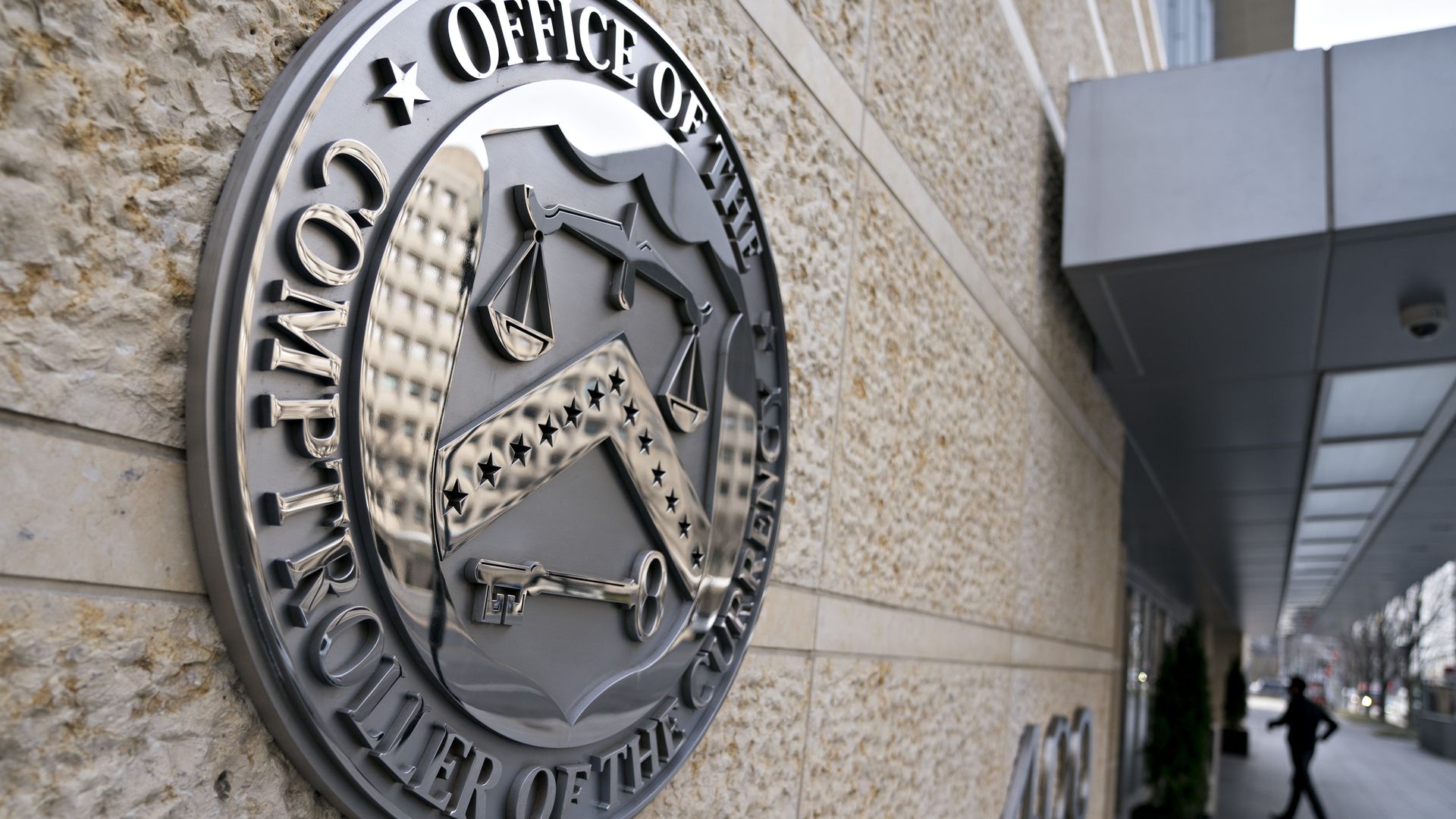Dec 17, 2021 - Energy & Climate
Bank regulators push Wall Street on climate risk
Add Axios as your preferred source to
see more of our stories on Google.

The seal of the Office of the Comptroller of the Currency displayed outside the organization's headquarters in Washington, D.C., on March 20, 2019. Photo: Andrew Harrer/Bloomberg via Getty Images
